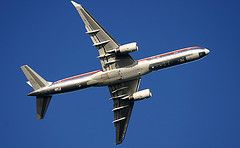ICAO landmark agreement on aviation emissions
United Nations International Civil Aviation Organization ruling to implement monitoring, reporting and verification of aviation emissions

The 38th Assembly of the United Nations International Civil Aviation Organization (ICAO) in Montreal last week saw a landmark agreement reached on limiting climate change impacts of aviation.
ICAO's 191 member states convened in the Canadian city last week and the agreement will set in motion the implementation of a global MBM, including standards for the monitoring, reporting and verification of emissions and the type of scheme to be implemented.
Tony Tyler, Director-General and Chief Executive of the International Air Transport Association (IATA) said: "Today was a great day for aviation, for the effort against climate change and for global standards and international cooperation. Industry, civil society and governments have worked hard to reach this point and keep aviation at the forefront of industries managing their climate change impact."
In June, IATA's 240 member airlines representing some 84 per cent of global traffic overwhelmingly passed a resolution asking governments to develop a global mandatory carbon-offsetting scheme. The industry believes that this will be the most effective and efficient MBM to implement.
Tyler was speaking after the new agreement had been reached and continued by saying: "Now we have a strong mandate and a short three-year time frame to sort out the details. Airlines need and want a global MBM [market-based measure]. Without losing any of the momentum built up over these last two weeks, we are eager to get on with the detailed work needed to design the global scheme in time for finalisation at the 2016 assembly."
IATA members agreed that technology, operations, infrastructure and economic measures made up the four-pillar strategy to address climate change and the organisations Technology Road Map ahs identified the technologies that could reduce fuel consumption per aircraft by up to 30 per cent.
Improved operations can save fuel and carbon-dioxide emissions by up to 6 per cent annually, while governments and infrastructure providers could avoid up to 12 per cent of carbon-dioxide emissions by addressing airport and airspace inefficiencies.
Air transport has reduced its fuel use and carbon-dioxide emissions per passenger-kilometre by well over 70 per cent compared with the 1960's due to technological and operational innovation.
Air traffic has increased by as much as 5.3 per cent year on year in this period, but total emissions for 2012 increased by only 3 per cent to 689 million tonnes of carbon dioxide, compared with 669 million tonnes in 2011.
According to IATA research, air transport accounts for 2 per cent of global man-made carbon-dioxide emissions. Air transport's contribution has not increased in the past 20 years and is not expected to increase beyond 3 per cent by 2050, the association says.





_400_250_80_s_c1.jpg)
